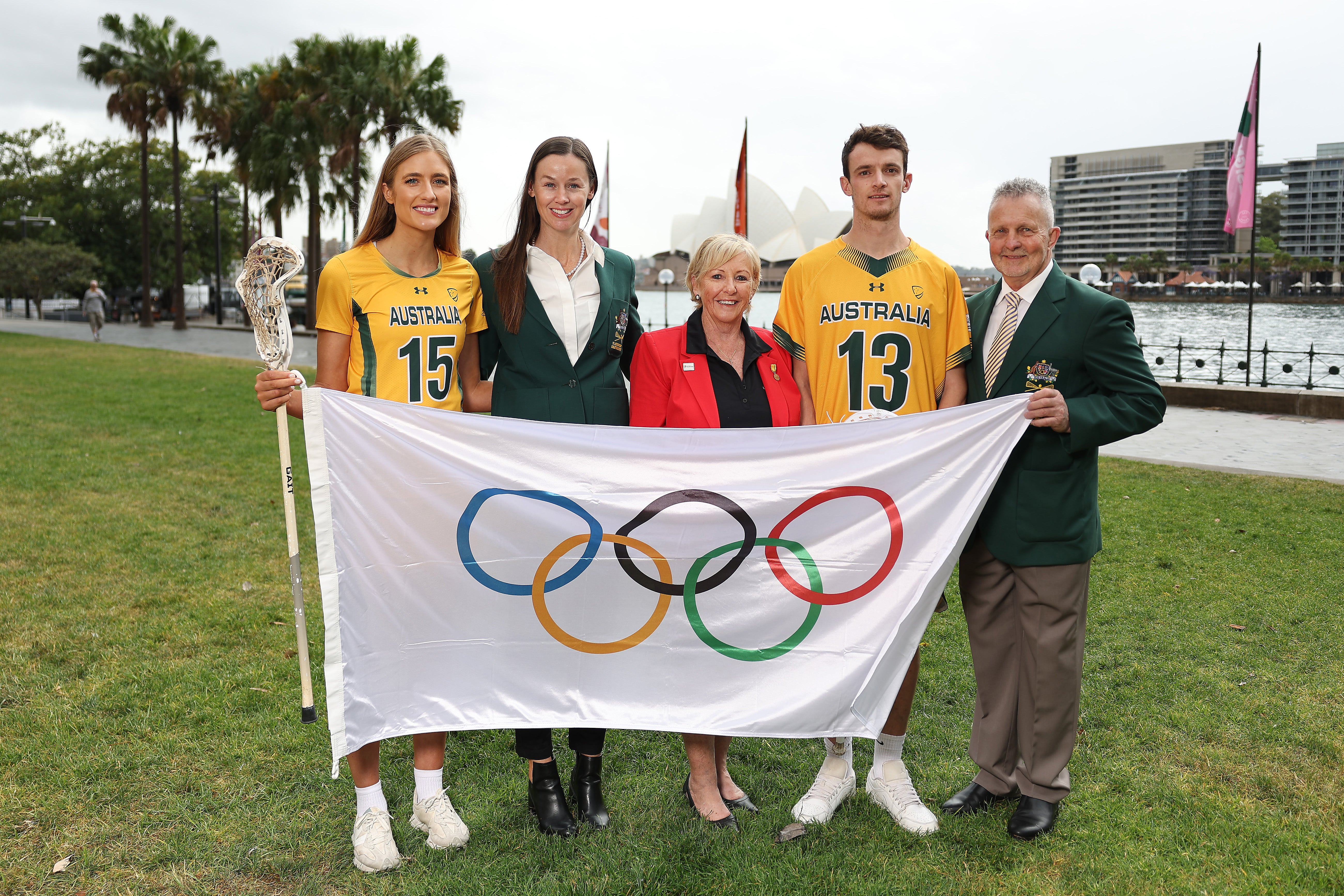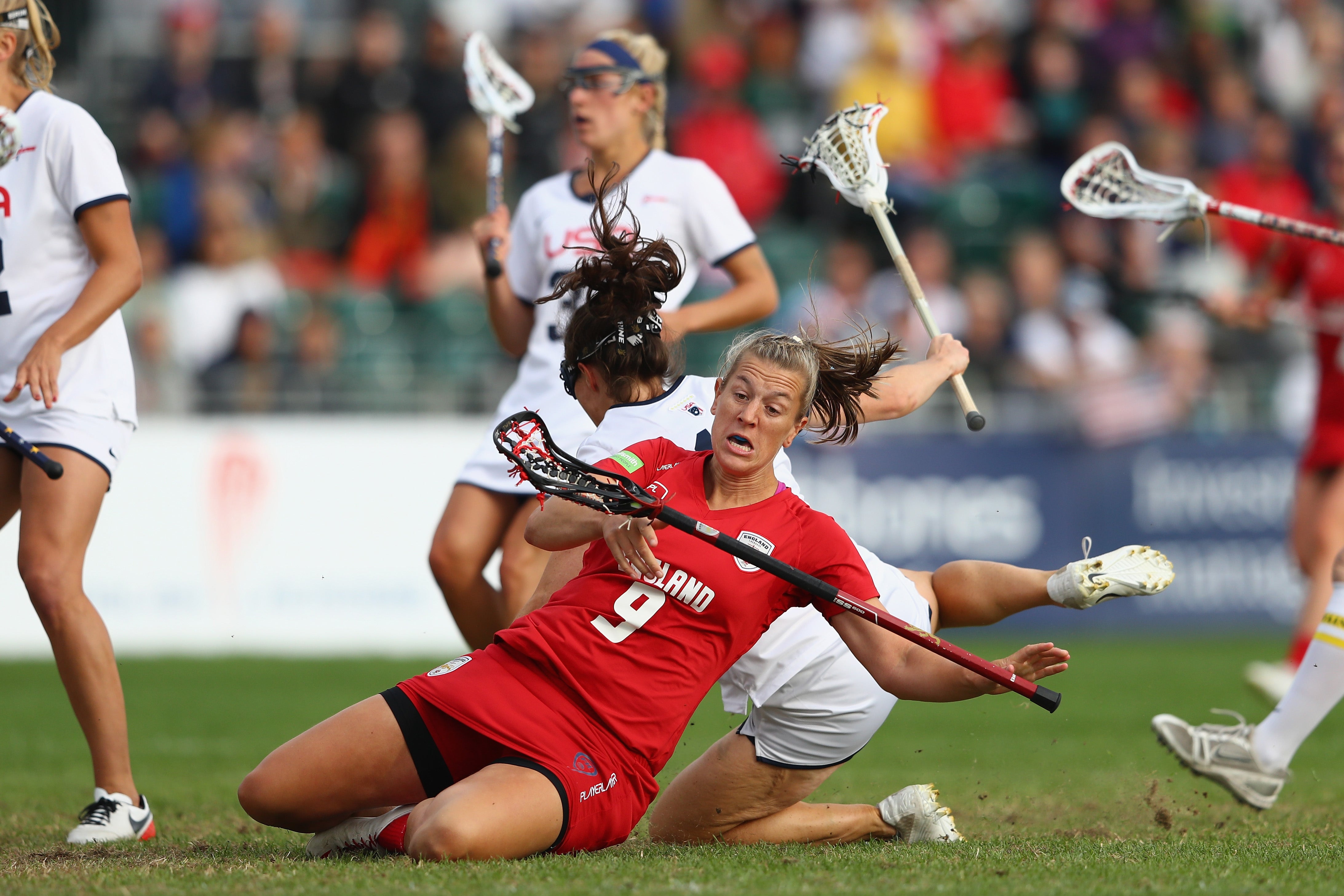Not just a sport for posh girls – the remarkable reinvention of lacrosse
In the south of England, it’s a sport mainly for women from private schools, but in the north, well, calling it a posh girls’ game could see you in deep trouble from the working-class men who traditionally play it. As lacrosse returns to the Olympics at Los Angeles 2028, Ben Bloom speaks to the British elite players fighting stereotypes and a lack of funding to bring home gold against the odds...


There tends to be a stark geographical divide behind people’s responses when star player Alex Russell describes himself as a British lacrosse international. The further south he goes – around London and the southeast of England – Russell is accustomed to a familiar refrain: “Lacrosse? Isn’t that a posh girls’ sport?”
The assumption is not without foundation. Of the 65,000 people in England who play the sport weekly, 68 per cent are women and, given the historic prevalence of lacrosse within the private-school system, the majority will indeed have emerged from that background.
But further north – predominantly around south Manchester, where Russell is from – there is greater recognition of a men’s sport with a radically different essence. Russell, a state-school-educated IT accounts manager, is part of the remaining 32 per cent of regular male lacrosse players who almost entirely made their way in the sport through community clubs.
“It’s long been a rough-and-ready northern man’s game, and there are a lot of tradesmen who do it,” he explains. “It’s the polar opposite of the women’s game. It’s kind of baffling that the two are the same but very different.”

For those tasked with leading lacrosse in Britain, the longstanding discrepancies between the two sexes is nothing new. But an announcement made on 16 October last year brought it into focus.
After its formal Olympic inclusion in 1904 and 1908, plus three appearances as a demonstration sport (in 1928, 1932 and 1948), confirmation of lacrosse’s return to the world’s biggest sporting stage at Los Angeles 2028 altered everything. Overnight, a sport that has only ever been amateur in all countries outside of North America was given the carrot of Olympic medals. The parameters shifted entirely.
“It’s a seismic moment,” states Mark Coups, England Lacrosse chief executive. “And our task now is significant.”
England have long been one of the world’s best lacrosse teams, with the women winning medals at seven of the last nine World Championships and the men placing between fourth and sixth on every occasion in the same timeframe. Behind the near unbeatable behemoths of the United States and Canada, both England sides are firmly in the fight for the final podium spot.
Throw in the best talent from the remaining home nations, who combine with England to form the British team at choice major global events such as the Olympics, and medal aspirations in Los Angeles are realistic. The big question now becomes how best to achieve that ambition.
Russell equates the highest level of domestic lacrosse in England to playing for a local rugby club: “It’s the same mentality – we’re going to play really hard and then have some beers in the bar together.”

Without any level of elite funding whatsoever, players currently have to foot their own bill to compete both domestically and globally, with the annual cost for internationals reaching somewhere in the region of £10,000.
Laura Merrifield, widely considered one of the best women’s lacrosse players England has ever produced, describes the personal financial cost over the course of her 20-year playing career as “pretty bonkers”.
“I hate even thinking about it,” she admits. “It actually makes stronger bonds on the team because you’re all making the same sacrifices to be part of something. But people have definitely pulled out because of that financial burden.”
Players have long been accustomed to selling raffle tickets at fundraising drives, asking local businesses to pledge financial support or else draining their savings to play the sport they love.
There is a reasonable expectation that Olympic inclusion will change all of that, with the lure of Los Angeles instantly adding an extra couple of zeros onto potential sponsorship and commercial figures, and UK Sport – who distribute government money for Olympic and Paralympic sports – likely to provide substantial cash after this summer’s Paris Games are complete and it turns attention to the following Olympic cycle.

“There’s a two-stage aspiration,” explains Coups. “The first thing is to try to bring individual costs down. Can you get people to play without needing to put their hand in their pocket? The second step is to then see if you can pay players to be able to take some time off work.
“The burden the athletes take on board is so big. But we’ve survived so far with no funding at elite level and look at the results we’ve achieved. Just think what we could do with a bit of help and resourcing.”
One of the biggest challenges comes from grappling with a new format created entirely to gain a place at the Olympics. While traditional field lacrosse featuring 10 players on each side has long been practised domestically and internationally, lacrosse sixes (with a reduced six players per side) was formed only in 2021.
All existing lacrosse infrastructure in Britain, every domestic league and each training session from the lowest to highest level of the sport related to a now non-Olympic format; the equivalent of 15-man rugby union to its fast-paced rugby sevens sibling. To counter the sudden shift, the recently formed British Lacrosse organisation has swiftly focused its entire energy to sixes, and a summer sixes competition has been hastily established.
So instant, and largely unexpected, has this revolution been, that many of the finer details remain in short supply, with questions around how and when Olympic qualification will take place still unanswered. Each month, those at the British Lacrosse helm glean a little more information about what the sport’s future might look like. It is a hugely exciting, but simultaneously perplexing, time.
The contrasting player backgrounds and distinct geographical spread of men and women’s lacrosse in Britain add further issues. Of late, the British men have trained together in Manchester, while the women combine in Oxford. Is it possible to create a central training hub when the two playing bases are, in large part, hundreds of miles apart? It is a question currently unanswered.

Pleasingly, for those at the helm, those historically sharp lines are blurring more each year. The spread of male players down south has resulted in the creation of new men’s lacrosse clubs, which have even triumphed over their northern counterparts at recent regional playoffs. Clubs nationwide are also venturing further into the female game, ensuring that international sides are no longer the preserve solely of privately educated women.
When she started playing for England almost two decades ago, Merrifield was an exception, having learned her craft at one of the few state schools to offer lacrosse. Increasingly, women from non-private school backgrounds are becoming more commonplace.
For Merrifield, now a mother of two and at the tail end of her career, the 2028 Olympics are likely to come too late, and lacrosse to her will remain the “serious hobby” that it always has been.
For her younger counterparts, like Russell, it represents an opportunity he never thought he would have: “It changes everything. Wow, I’m going to be an Olympian following the same path as the greats like Sir Chris Hoy and Jessica Ennis. This is a serious life change.”
Having contentedly adopted the mindset of enjoying weekend lacrosse for his club and playing internationally whenever possible, Russell has now committed to giving everything he possibly can to attain an Olympic medal that was not even an option six months ago.
“The mindset has shifted completely,” he says. “Now I ask myself whether I need to go out with friends on the weekend or if I need to drink alcohol. I see being an Olympian as a true honour and privilege. You don’t want to stain that by not working hard and giving your all.
“In my head, I want to turn up as the fittest person on the lacrosse field for any nation, if not the fittest person of any sport there. That’s the mindset I’ve given myself because without that what’s the point?”
At the moment, that means having to juggle a full-time job while attempting to live like a professional sportsman without any of the luxuries enjoyed by his peers in other sports. Oh, and shelling out thousands of pounds for the privilege.
But it is a privilege which, to him and his teammates, makes it firmly worthwhile. And if he returns from Los Angeles with a medal in four years’ time, no one in Britain will think lacrosse is just for posh girls anymore.






Join our commenting forum
Join thought-provoking conversations, follow other Independent readers and see their replies
Comments